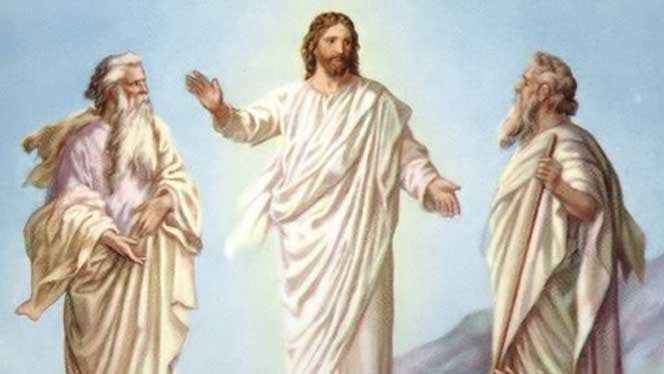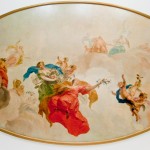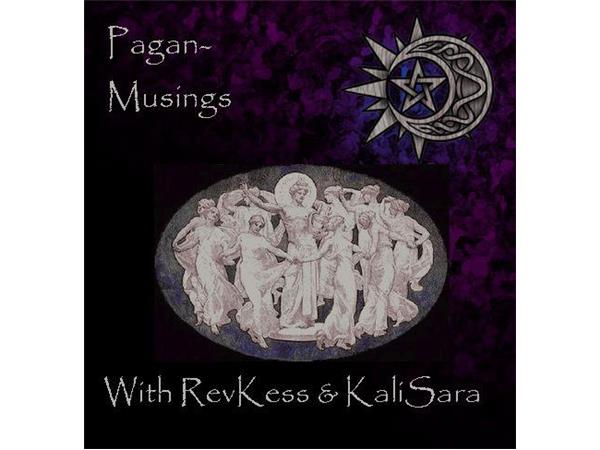
It’s going to take me a minute to get to the Pagan analogy … but bear with me.
A Trip Into the Bible Belt
Over Easter weekend, my family and I went to visit my mother in Missouri. She really wanted to see a production of the musical “Moses” at the Sight & Sound Theatre in Branson. Having never been to Branson, I really had no idea what to expect. The production was spectacular. Some of the music was really moving. The sets were gorgeous. And the special effects were awesome. When Moses’ staff turned into a snake, it looked so real, people around me literally jumped. We were really close to the stage, so when Moses parted the sea, I felt like I was there.
But there were a few moments during the production when something seemed … off.
First, the play was introduced by a young man who advised that, although the production based in true events, it took creative license with the Biblical text. “That’s strange,” I thought, “Why would he need to say that?” Having lived most of my life on the periphery of the Bible belt, I didn’t realize I had entered new cultural territory.
The second moment was when the angel of death comes to take the first born sons of Egypt. It was a really cool scene with a balletic angel flying through the air on cables. I was so distracted by the angel, I almost missed the conspicuously placed cross which was worked into the scenery. “A cross?” I thought, “Isn’t this a Jewish story, as well as a Christian one?”
And then came the finale. The Israelites cross the Red Sea. Moses is given the tablets. And then … wait … what is that? Jesus standing silently on a rock amid the people of Israel! WTF?! Where am I?!
Whose Story Is This?
I must have seen the Exodus story dozens of times in a dozen forms, from Cecile B. DeMille’s The Ten Commandments to the DreamWorks Prince of Egypt. As far as I can remember, the story was always told from a Jewish perspective. Christians could read their own meanings into it, but there was no overt Christian symbolism. This was something else entirely.
Then when the play was over, we were advised by the announcer that individuals were stationed around the theater to pray with us if we wanted. No one was pushy about. It was just an invitation. But the reality of where I was finally began to sink in. I had thought I was in a secular space — in spite of seeing a presentation of a sacred story — only to discover that I was in a very specifically Christian space.
Of course, to a Christian, there would be nothing odd about any of this. But I imagined a Jew in the audience being quite offended by the appropriation of their sacred myth. And I felt quite a bit of vicarious outrage as I left the theater with my family.
But it took me a while to work through my feelings. On the one hand, Christians do share the basic Exodus story with Jews, although it means different things to the two groups. On the other hand, the Exodus story is more central to the Jewish mythos than the Christian one. So who has the right to it?
Sharing Our Gods
I found myself thinking about how we Pagans and Polytheists share many myths and symbols … and how we sometimes feel like each others are appropriating our gods and their myths.
I’ve actually been on both ends of this at different times in my life. When I was Mormon, I experienced the feeling of someone else appropriating my own religion when talking to a Bah’ai who said she believed Joseph Smith was a prophet, but not the prophet I thought he was. Since then, as an eclectic Pagan, I’ve been accused of appropriating other people’s sacred imagery and disrespecting a couple of the most popular polytheist gods. And I you should see some of the ire that I provoke when I talk about my (Nietzchean) Apollo and Dionysos as part of my personal pantheon.
It is an unavoidable fact that we have to share our most sacred symbols with others. I think all we can do is to acknowledge it … to acknowledge that there are other people for whom our gods and our symbols are sacred … but sacred in a different way. Where I think the production of “Moses” went wrong was not that they told the Exodus story from a Christian perspective, but that they didn’t acknowledge that there is another perspective as well. There was a presumptuousness about the production that a simple nod to the Jewish narrative would have gone a long way to ameliorate.
We don’t own our myths … or our gods … or their images. And we shouldn’t act like we do. There will always be other people will understand them differently. The way they understand them may not be sacred to us, but we still have got to respect that they are sacred to them.
Now, mind you, I’m not endorsing commercialization of the sacred. Not every appropriation of sacred imagery is sacred. But we should be able to recognize the sacred dimension in other people’s lives … and respect it … even when it overlaps uncomfortably with our own.
For my part, I’m going to make an effort from now on to refer to my gods as my gods — i.e., my Apollo and my Dionysos — rather than speaking about them as if my understanding of them is the whole of their meaning. I know there will still be polytheistic devotees of Apollo and Dionysos who will find my “appropriation” of “their” gods and their symbolism to be off-putting. But I hope that they will nevertheless recognize the sacredness of my intent, as I do theirs.
















